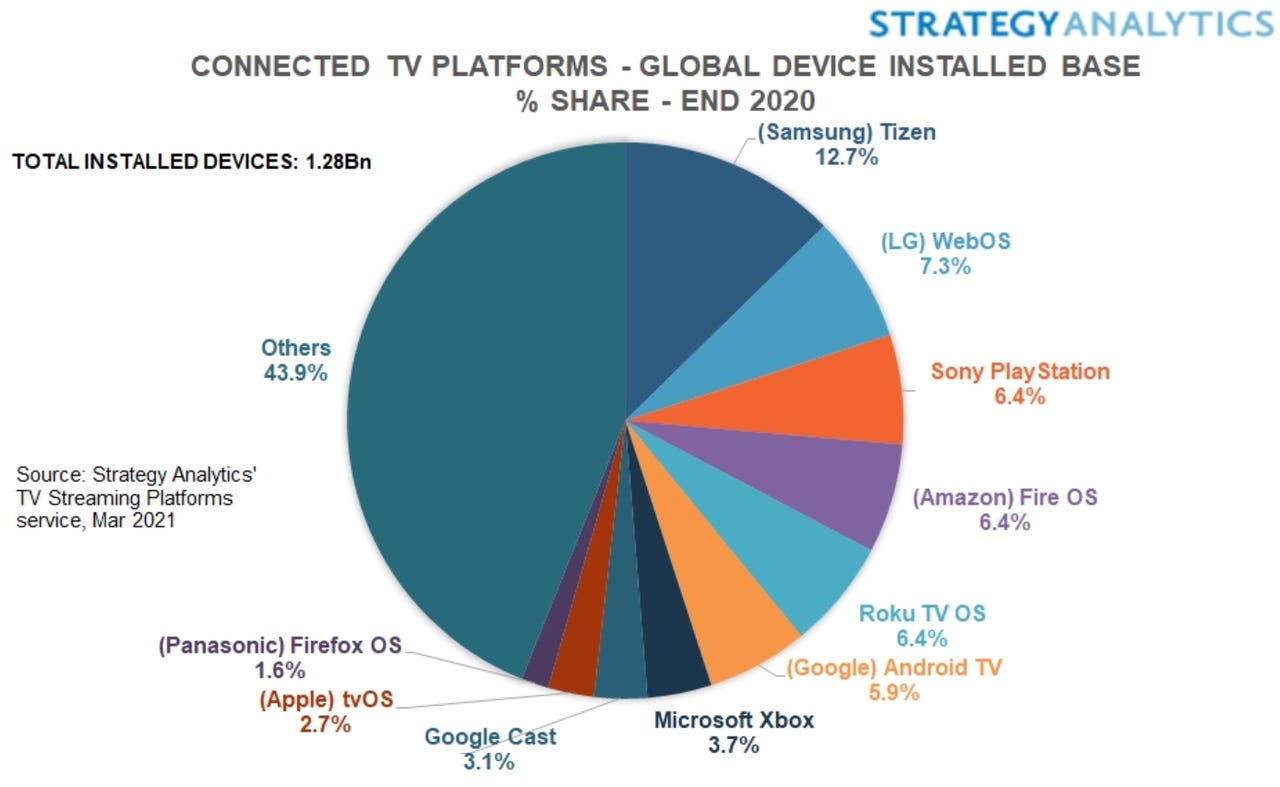Samsung's Tizen, LG's WebOS finally in winner's circle after long list of miscues


You didn't see this Tizen, WebOS popularity contest in 2014 did you?
Samsung's Tizen OS has expanded its lead in smart TVs and streaming platforms with LG's WebOS a distant second, according to Strategy Analytics. Considering the history of those two operating systems it's a minor miracle that Tizen and WebOS are still around let alone No. 1 and No. 2 in anything.
Meanwhile, Strategy Analytics is predicting Tizen will be on 184 million devices by the end of 2021.
Go figure. The Tizen and WebOS formulas are pretty simple. Massive TV manufacturers use failed mobile operating systems, open source and scale to become dominant platforms. Tizen was a phone operating system that Samsung cooked up to keep Android from dominating. WebOS was an awesome mobile operating system without a dominant player (Palm then HP). LG bought WebOS from HP in what turned out to be the equivalent of thrifting for code.
Some lowlights from the Tizen and WebOS histories.
Tizen
- Samsung unveils its first Tizen phone
- Samsung indefinitely puts the brakes on Tizen launch
- Samsung's Tizen smartphone OS: Dead or alive?
- CES 2015: The Linux penguin in your TV
WebOS
- CES 2009: Palm announces the Palm Web OS and the Palm Pre device
- HP punts on WebOS, discontinues TouchPad, cuts outlook
- HP confirms layoffs; Cutting 500 jobs at webOS division
- If webOS is the perfect mobile OS, why can't it succeed?
- LG acquires webOS for smart TVs; webOS to remain open-source
The history is notable, but the more surprising part is that Tizen and WebOS are holding their respective places. After all, Google Android TV, Google Cast, Roku TV OS and Amazon's Fire OS would all likely be rated as more trendy.
Strategy Analytics also noted that Samsung's strong Tizen growth is enabling it to monetize the platform and offer targeted advertising.
Ultimately, this smart TV software battle will come down to whether hardware (TV manufacturers) lead the OS charge or whether your streaming box ultimately takes over the entertainment stack.
Strategy Analytics analyst David Mercer noted:
As streaming on TVs becomes the preferred video viewing behavior, content providers will rely increasingly on the UI, analytics, advertising and content discovery capabilities of connected TV platforms and the firms controlling them. As we are seeing in smartphones today, we envisage strategic conflicts eventually emerging between content and TV streaming platforms which will raise challenging structural and regulatory questions.
What's next? No idea, but it's nice to see these tech savvy yet market failures get new life. Maybe Tizen and WebOS just needed bigger screens.